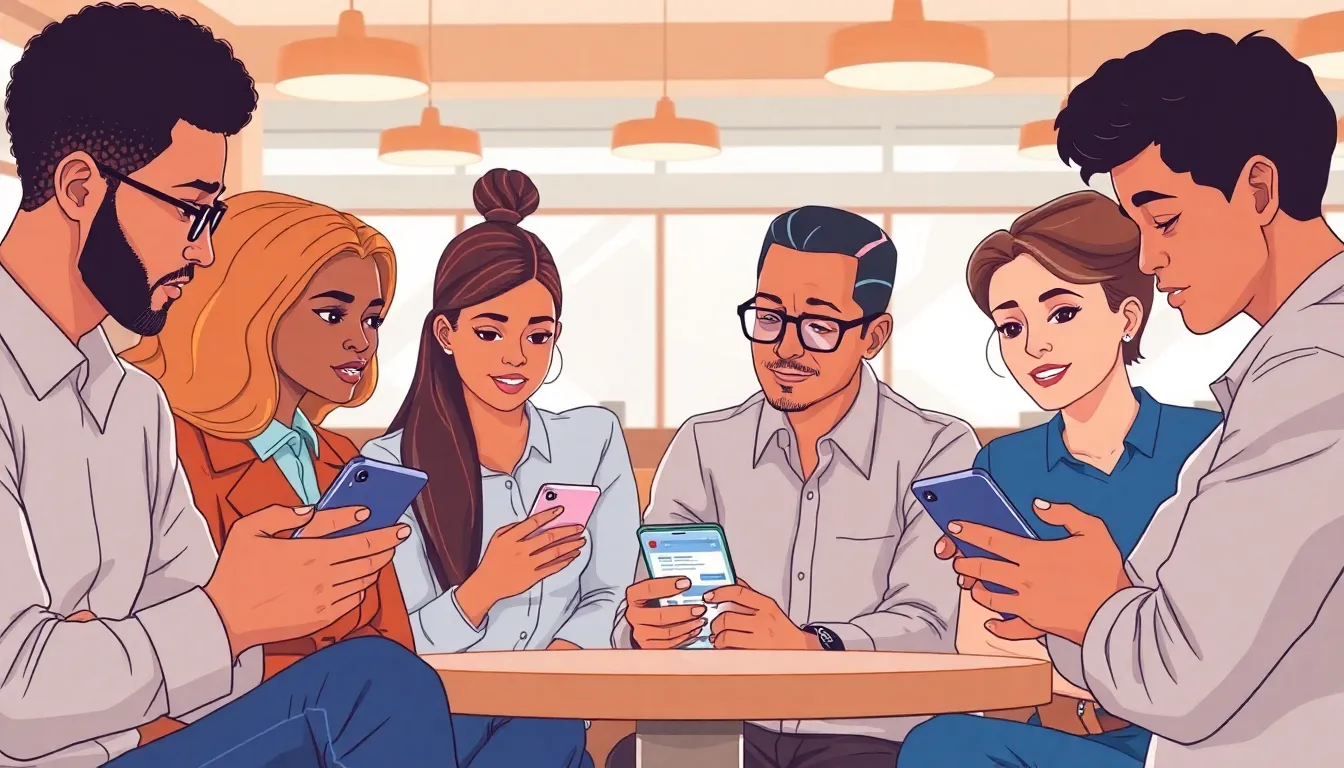Table of Contents
ToggleIn a world where scrolling through endless feeds has become a daily ritual, social media can feel like a double-edged sword. On one hand, it connects friends and family across the globe, but on the other, it’s a breeding ground for negativity and comparison. Ever found yourself feeling like a potato while scrolling through perfectly filtered lives? You’re not alone.
The truth is, social media can be downright toxic. From relentless FOMO to the pressure of curated perfection, it often leaves users feeling drained and dissatisfied. As they navigate this digital jungle, it’s crucial to recognize the impact it has on mental health and well-being. So, let’s dive into the murky waters of social media and explore why it might be time to hit that unfollow button and reclaim a little peace of mind.
Understanding The Toxicity Of Social Media
Social media has a significant impact on users’ mental health and self-esteem. These platforms can foster connections but also create an environment filled with negativity and unrealistic expectations.
The Impact On Mental Health
Many studies show a correlation between extensive social media use and increased levels of anxiety and depression. Users often compare themselves to curated highlights of others’ lives, leading to feelings of inadequacy. Research indicates that excessive exposure to negative comments and online bullying exacerbates these issues. Users frequently feel isolated despite being connected, as online interactions lack the depth of real-life relationships. The constant need for validation through likes and comments can lead to addictive behavior, contributing to poor mental health outcomes.
The Influence On Self-Esteem
Self-esteem is crucial for overall well-being, and social media often undermines it. Many individuals assess their worth based on engagement metrics, such as likes and shares. This practice can create an unhealthy cycle of comparison, where users feel inferior if their posts do not perform well. Studies reveal that frequent social media users report lower self-esteem and higher levels of body dissatisfaction. Exposure to idealized beauty standards further intensifies feelings of inadequacy. Ultimately, social media can distort self-image, leading individuals to prioritize online approval over authentic self-acceptance.
The Role Of Misinformation

Misinformation plays a significant role in the toxicity of social media. Understanding its impact is essential for recognizing how it shapes perceptions and influences behavior.
Spread Of Fake News
Fake news spreads rapidly across social media platforms. Algorithms often prioritize sensational content, allowing misleading information to gain attention. Users encounter fabricated stories mixed with real news, leading to confusion and misbelief. In a survey, 59% of U.S. adults reported encountering misinformation on social media regularly. Furthermore, the viral nature of false information can distort reality, making it challenging for individuals to discern credible sources. Without proper verification, many users unknowingly share these inaccuracies, amplifying their reach.
Effects On Public Opinion
The effects of misinformation extend to public opinion. Public trust in traditional media outlets often declines as users rely more on social media. Consequently, misinformation can sway perceptions on critical issues, such as health and politics. A study revealed that 70% of people believe fake news can influence political opinions. Emotional reactions to sensationalized content can obscure rational discourse. As negative attitudes toward certain groups or ideas develop from shared false narratives, societal polarization may increase. Thus, the reliability of shared information significantly influences collective beliefs and attitudes.
Cyberbullying And Its Effects
Cyberbullying significantly harms individuals, particularly among youth. Victims often experience depression, anxiety, and a decline in self-esteem. Data reveals that approximately 36% of U.S. teens encounter cyberbullying, leading to feelings of isolation and helplessness. Emotional scars from online harassment can linger, impacting relationships and academic performance. Isolation may heighten these negative effects, leaving victims feeling alone in their struggles. Reports suggest that victims of cyberbullying are ten times more likely to contemplate suicide compared to their peers.
Victims Of Cyberbullying
Victims of cyberbullying exhibit various psychological symptoms. These individuals may struggle with feelings of worthlessness and increased anxiety. Reports indicate one in four victims experiences severe emotional distress. Physical symptoms may also occur, such as headaches and stomach issues. People targeted often withdraw from social interactions and display declining performance in school or work. Many survivors report long-term trauma from their experiences. They frequently find it difficult to establish trust in relationships moving forward. The impact of cyberbullying extends beyond immediate emotional pain, affecting overall mental health for years.
Strategies For Prevention
Preventing cyberbullying requires a collective approach. Education plays a crucial role in informing students, parents, and educators about its effects. Schools may implement anti-bullying programs that foster a supportive environment. Engaging parents through workshops cultivates awareness about signs of cyberbullying. Encouraging open discussions about online behavior helps establish a culture of empathy and support. Empowering victims to report incidents can foster a sense of community. Promoting digital literacy equips individuals with the tools to navigate online spaces responsibly. Together, these strategies can significantly reduce incidences of cyberbullying.
Social Media Addiction
Social media addiction affects users across all age groups. Individuals often find themselves compulsively checking their feeds, losing track of time. Many report feeling anxious when unable to access their accounts, indicating a strong reliance on digital platforms.
Signs Of Addiction
Common signs of social media addiction include neglecting responsibilities. Users might prioritize online interactions over face-to-face relationships, leading to feelings of isolation. Increased screen time and constant checking for notifications often signal dependency. Changes in mood can also occur, especially feelings of frustration or sadness when engagement is lacking. Emotional distress during breaks from social media can indicate a deeper issue of addiction.
Consequences On Daily Life
Social media addiction impacts daily routines significantly. Users often experience reduced productivity, struggling to focus on tasks. This distraction can affect both work and academic performance, resulting in missed deadlines. Social interactions may decline as individuals prefer virtual connections over real-life encounters. Relationships with family and friends might strain due to decreased participation in shared activities. Mental health suffers as the cycle of comparison and validation intensifies, exacerbating anxiety and depression.
Social media’s impact on mental health and self-esteem can’t be overstated. The constant comparison and pursuit of validation create a toxic environment that can lead to anxiety and depression. Users must take a step back and evaluate their online habits.
By unfollowing negative influences and prioritizing authentic connections, individuals can reclaim their sense of self-worth. It’s essential to foster a healthier relationship with social media. Awareness and proactive measures can help mitigate its adverse effects and promote overall well-being.




